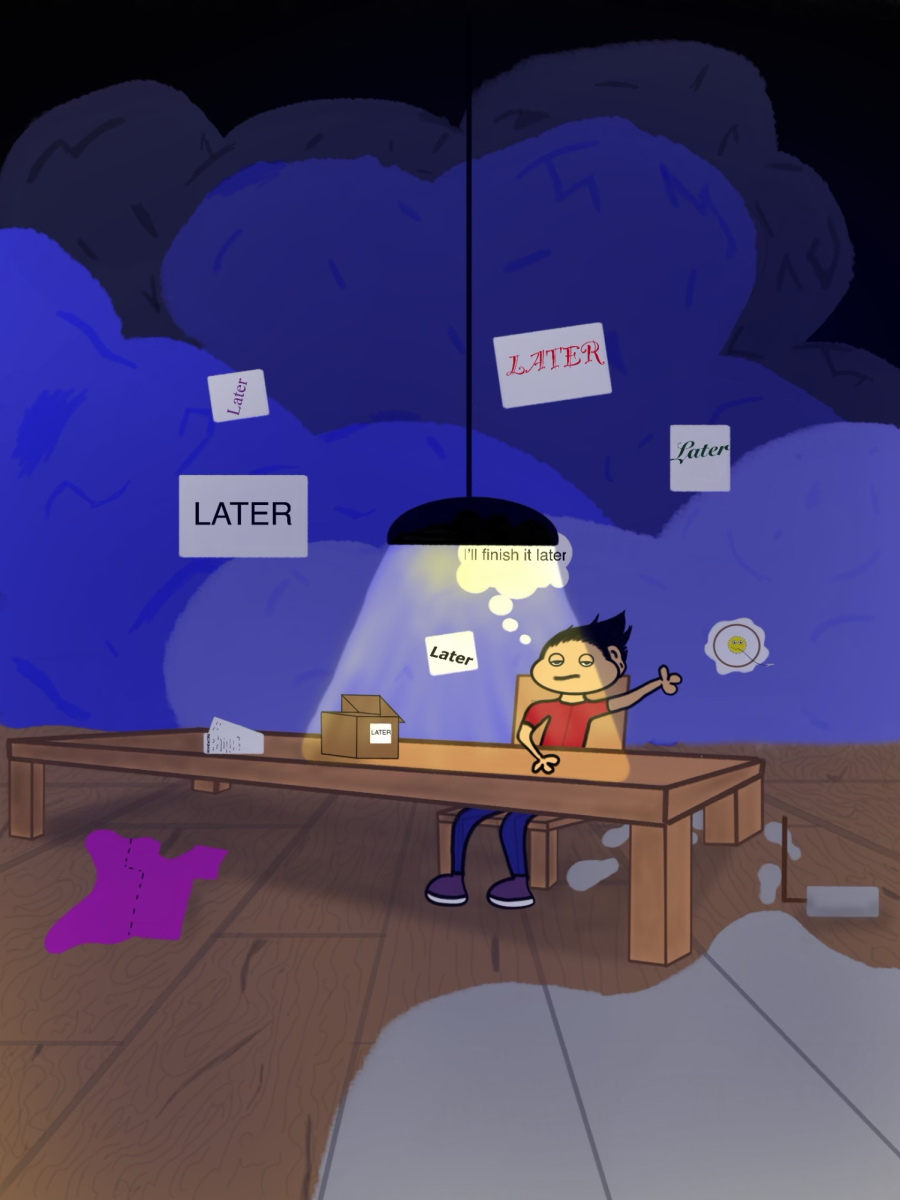Imagine a person, a steering wheel, and a monkey. The person represents the rational part of the human brain, which helps with decision-making, the wheel stands for those decisions, and the monkey handles distractions and procrastination. Whenever the person turning the wheel is distracted by the monkey, he/she is procrastinating, and by the time that person gets back to the wheel, the deadline for the task is already too soon, and the person enters panic mode. This analogy was inspired by Tim Urban’s Ted Talk entitled “Inside the Mind of a Master Procrastinator.”
I am a procrastinator. In fact, I would go as far as to call myself an “expert at procrastination” since I do it so often and never make a mistake when doing so. I have procrastinated during my entire life, and it has resulted in stress and anxiety accompanied by a lack of sleep and tiredness during the day. I view tasks as curses that I am forced to do for a grade and nothing else, but during my late middle school years, I began to realize that assignments help me learn interesting information. I was just learning the wrong way, in a way that made me believe that it was boring and unpleasant.
Orchestra teacher Veronica Underhill described how she handles procrastination: “I realize that I am doing it, and it causes anxiety to arise from within me, and it forces me to work because my mind associates procrastination with anxiety.” Underhill is not the only one who faces this struggle. With an abundance of distractions such as social media and the rise of technology, how could anybody not procrastinate?
To picture procrastination on a larger scale, the average American life expectancy is about 692,040 hours (79 years), and the average American wastes about 2.75 hours per day. This means that about 50,461 hours of life (five years) are wasted, according to an article by Study Finds (StudyFinds.org).
Sometimes, people are not aware that they are procrastinating and continue to procrastinate before they realize how much time they have wasted. AP English Literature teacher Christine Gallehugh related, “As a recovering procrastinator, I feel that it is a dishonor to yourself if you put off tasks that you are passionate about, and that you couldn’t fulfill your true potential.”
Social studies teacher Olga Zisel-Hetrick offered an explanation as to why people procrastinate. “Other situations in life come up, and those are prioritized over the tasks at hand,” she said. In other words, people tend to look towards the future and not at what is most important in the present.
In schools, we are neither taught how to learn nor how to study. We either must cope with the material that we are fed, or we must teach ourselves how to learn. I chose the latter because I found that it was just too difficult to be clueless.
I realized that if I want to achieve my goals, I need motivation. If I am not motivated, then I would never want to do anything. Procrastination is simply what your mind does when it is not motivated; for a person to stay motivated, the task needs to be engaging. My strategy for motivating myself was to purchase a desk that created my own personalizable at-home workspace. The desk makes my work area feel more complete and gives me a space in which I want to stop and be productive. I placed it right next to the window so that when I need a break, I can gaze out the window and take in a breath of fresh air.
As a result of these efforts to keep me engaged, I have slept longer, felt more energetic, and experienced an improvement in my physical health. Before this change, I thought to myself, “Am I the only one?” But then I had an epiphany: If I procrastinate, then so do billionaires, journalists, authors, insurance workers, doctors, and everyone else. This insight made me realize that procrastination is a part of human nature; even the most intelligent people procrastinate because sometimes the world is boring and negative, and we need a distraction.





















